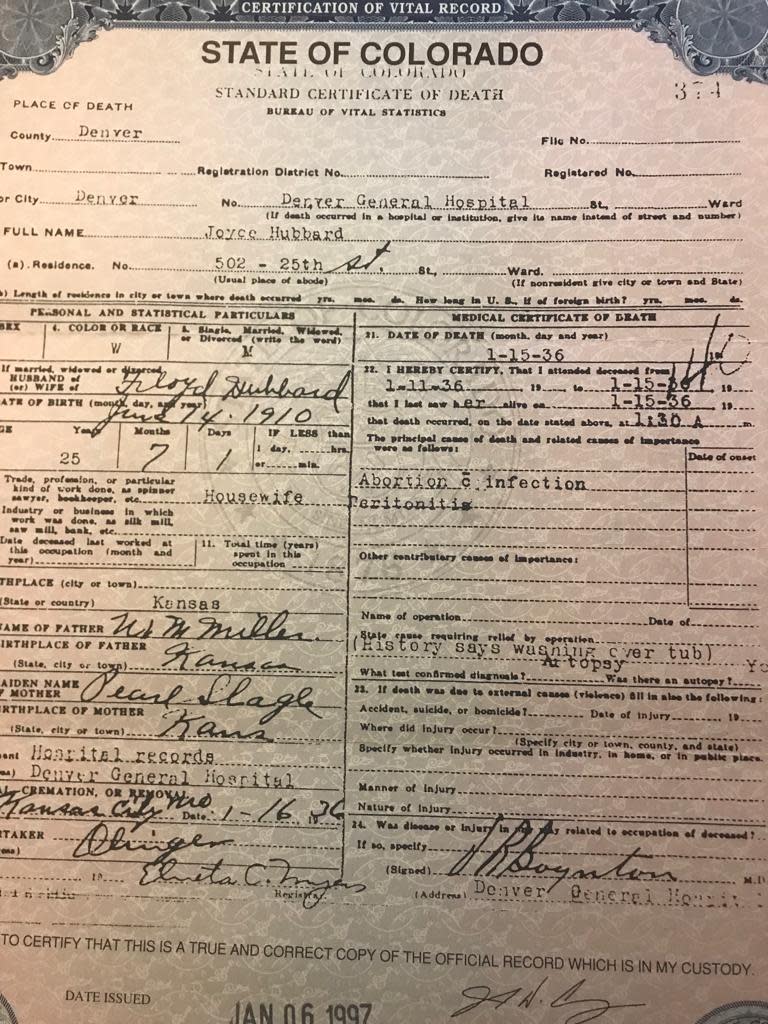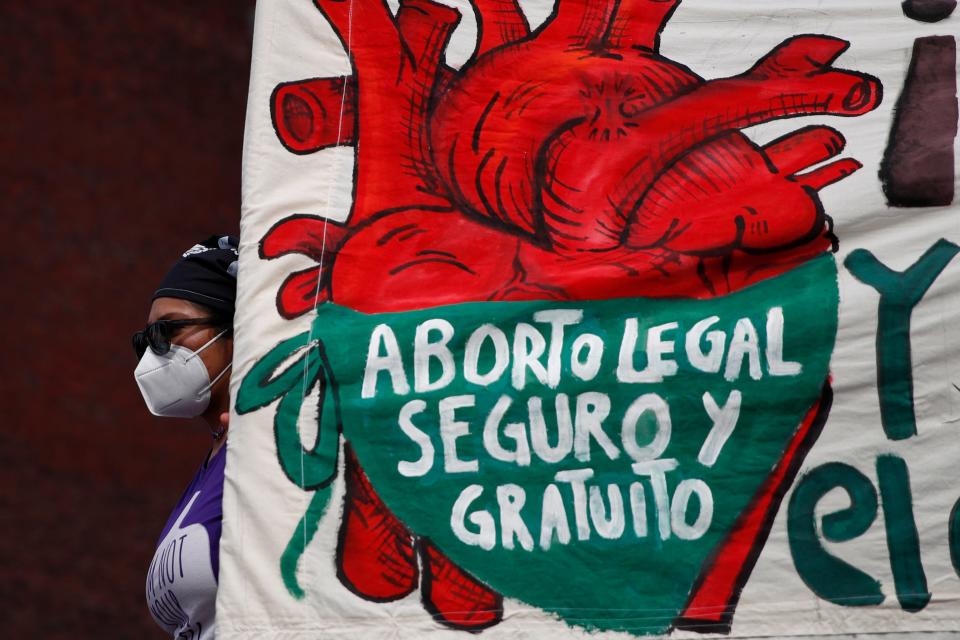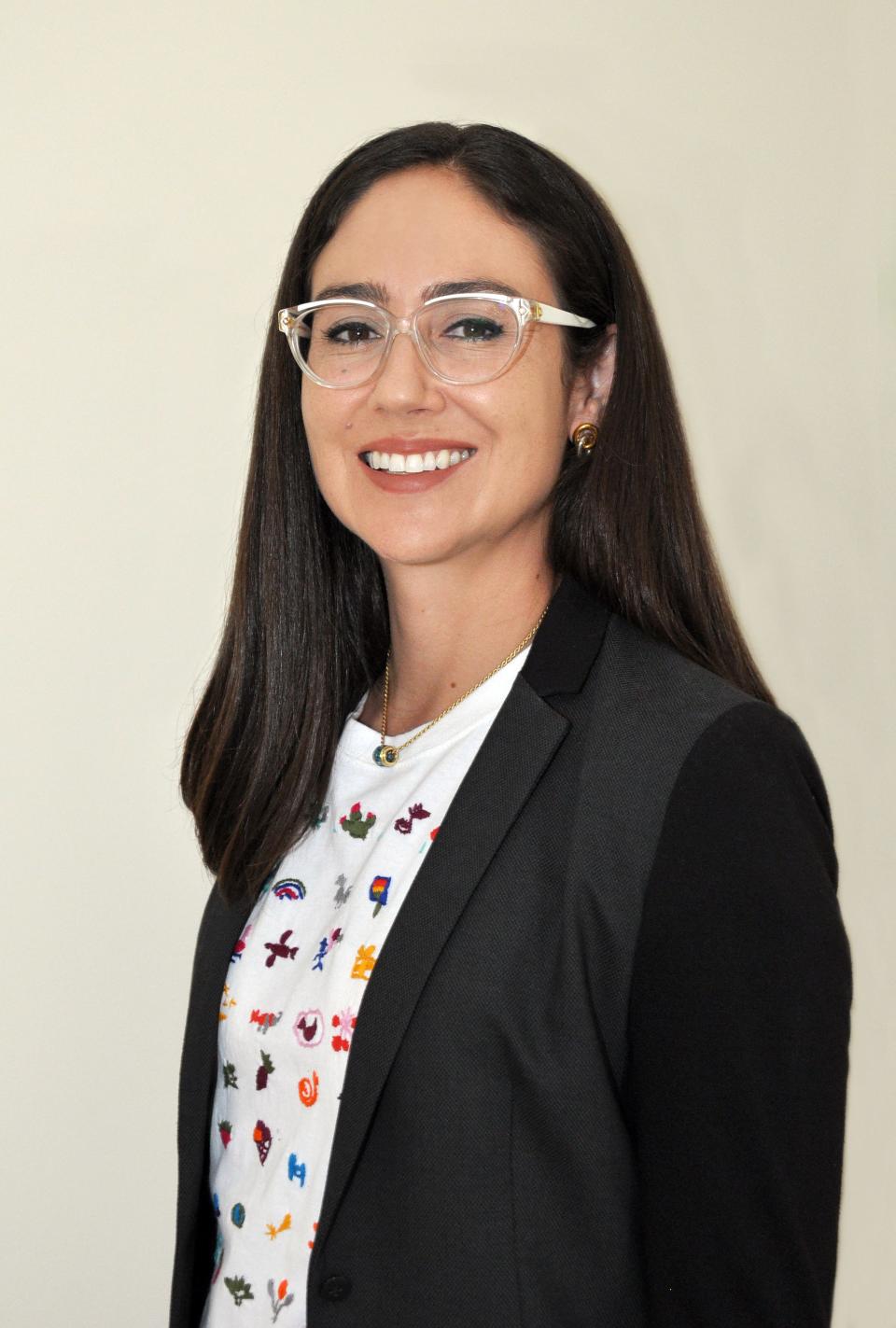Abortions in Mexico? If Roe v. Wade is overturned, women will still have options
The late Supreme Court Justice Ruth Bader Ginsburg warned what would happen if states restricted access to abortions. In the 2016 Supreme Court case Whole Woman’s Health v. Hellerstedt, Ginsburg wrote in a concurring opinion, "When a State severely limits access to safe and legal procedures, women in desperate circumstances may resort to unlicensed rogue practitioners, faute de mieux, at great risk to their health and safety."
She wrote that because it had happened for many years before Roe v. Wade was decided.
Botched abortion killed my great-grandmother
My great-grandmother was one of the pre-Roe era's less fortunate. She died after a botched clandestine abortion in the 1930s.
Decades later, in 1967, a female relative arrived at Mexico City International Airport. She came for an abortion. The procedure was illegal in both countries, but she had heard from a female gynecologist that a hospital in Mexico City provided affordable and safe abortions.

My relative was 19 at the time. Before the pregnancy, she had gone to a male gynecologist for birth control. He told her he "absolutely would not give me birth control." Then, she got pregnant.
She lost a lot of blood in the surgery and needed a transfusion, so she spent the night at the hospital. Because she couldn't afford to stay longer, she flew back to Colorado the next day. She was alone, with intense pain and still bleeding. It was hell.
In 1973, Roe v. Wade established a woman's constitutional right to an abortion. In 1992, in Planned Parenthood v. Casey, that decision was upheld.
Women's rights are under attack
Women's rights were progressing, and my relative thought that girls would never again have to travel out of the country for an abortion.
She was wrong.
Now, in 2022, states across the USA are rolling back women's rights to what feels like the Dark Ages, while the Supreme Court with its conservative majority teeters on reversing Roe.
Abortion rights are under unprecedented attacks in the United States. On April 14, Florida Gov. Ron DeSantis signed a law banning abortions after 15 weeks. In Kentucky, legislators passed similar legislation. In Arizona, Idaho, Indiana, Mississippi, Missouri, South Dakota, Texas and Wyoming, restrictive abortion legislation also has passed or is in the works. All that's left is to overturn Roe, and American women will be without legal recourse for an abortion in many states.
Mexico increases access to abortion
In Mexico, the opposite is happening. In 2021, the Mexican Supreme Court declared that abortion can no longer be considered a crime. In Mexico City the procedure is legal and accessible as it is in Baja California, Veracruz, Oaxaca and Hidalgo. Other states are sure to follow.

What's happening in the United States hasn't gone unnoticed in Mexico. Attorney Luisa Garcia is the director of Profem, a reproductive rights clinic that sits half a block from the U.S.-Mexico border in Baja California. In a phone interview, she told me that women from the USA are traveling to her clinic for abortions because the wait time and the cost are significantly less.
"We have only been open for about six months and have barely advertised our services," she said. "I am sure we will be getting more as time goes on. ... We can provide a medical or procedural abortion the same day they get here, no wait time. It also costs only about $200. In the U.S., it costs at least $500," she said.
She said most American patients are from Arizona and California.

Lina-Maria Murillo, an assistant professor of Gender, Women's and Sexuality Studies, History, and Latina/o/x Studies at the University of Iowa, said it's hard to know how many women are traveling to Mexico for abortions because "it is not easy to track clandestine trips across borders for access to reproductive care."
She said in places like El Paso, Texas, abortion clinics are no longer open. So, women are crossing to border cities such as Ciudad Juarez to obtain the abortion pill, misoprostol, at pharmacies.
She also said abortion funds – organizations that help women bypass logistical and financial barriers to abortion – in states like Texas are hesitant to talk about organizing trips to Mexico because they are operating on the fringes of the law and are overwhelmed with trying to help patients access care.
Women have always sought out abortions, and they will continue to do so, whether they are legal or not. Nearly a century after the death of my great-grandmother, and five decades after my relative had to leave the country to have an abortion, American women's reproductive rights are under attack.
But we will not stop fighting.
Carli Pierson is an attorney, former professor of human rights, writer and member of USA TODAY's Editorial Board.
This article originally appeared on USA TODAY: Abortions in Mexico? If Roe v. Wade is overturned, options still exist

